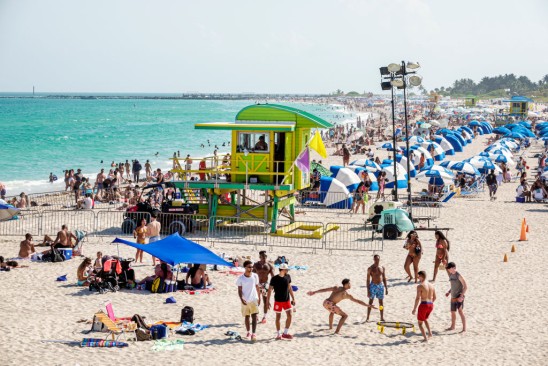More Americans taking vacation

Americans are vacationing more this summer than they have in a decade. The number of workers taking vacation days in June grew 11% from the previous year, and the amount of time they took off rose by 5%. So what’s behind the vacation boom? With more economists expecting a “soft-landing” for the economy, Americans may be less worried about job security than they were during the pandemic, when the question of a recession loomed large. Many employers, such as Priceline and TaskRabbit, are also now forcing their employees to take time off to recharge.
By Emma W. Thorne, Editor at LinkedIn News
How Americans Learned to Stop Worrying and Take Vacation This Summer
There’s a big reason airports and resorts are booked up this summer: Americans are taking off work and vacationing more than they have in over a decade. In some cases, their employers are forcing them to.
John Skeel, 58 years old, didn’t go on any vacations during the thick of Covid-19, and the longest time he’d taken off in recent memory was a long weekend. After a layoff several years ago, he worried about taking extended time away from his job—particularly as companies in tech and other industries cut jobs last year.
This summer, he decided he and wife needed a serious vacation no matter what. They went away for three weeks in June, first on an 11-day cruise around Southern Europe, then several days in London and Scotland. It made him wish he’d taken such vacations sooner, he said.
“I feel as if I’ve done myself and my family a disservice by not taking more time,” he said.
His worries weren’t unfounded: Soon after his return, he was laid off from his job managing an animal shelter in the San Diego area. He said he doesn’t know whether taking a longer vacation was a factor—and says he has no regrets. A representative for the city said the job went away after a reorganization and that they appreciated his time there.
“I’m definitely going to do this a lot more,” said Skeel, who has already booked a vacation to England, Iceland and Norway for next summer.
Karen Pavlin, chief equity and inclusion officer of business-software company ServiceNow, said she spent a week in July with her family on Fire Island in New York. Trusting her team to take care of things while she was away helped her relax, she said.
Though she didn’t disconnect from work entirely, she went longer stretches without checking her phone or laptop than in previous years, she said.
“You’re not only investing in yourself,” Pavlin said. “You just come back to work with increased productivity and a renewed sense of purpose.”
While many Americans who have been in their jobs for more than five years get between 15 and 24 paid days off, according to federal data, Europeans often get more time. European Union countries are required to give workers at least 20 days off each year, with countries such as France and the U.K. mandating more, according to the Organization for Economic Cooperation and Development. Roughly half of U.S. workers in a March survey said they take all the time off that their employer offers, according to Pew Research Center, which polled 5,000 workers.
Some U.S. companies are nudging their staff to take more time off this summer, in some cases by giving them no choice. TaskRabbit, an online marketplace for freelance labor, said it recently began declaring two annual “Recharge Weeks,” in addition to employees’ regular paid time off. Staff get those paid weeks off to disconnect and relax, the company said.
Online travel agency Priceline holds an annual “Priceline Pause” week, during which its workforce of 1,500 staff members takes vacation. Liz Dente, Priceline’s chief people officer, said some employees tack some of their own paid time off before or after the pause to give themselves at least two weeks away from work, she said.
“That frees up a lot of time to do a really meaningful trip,” Dente said.



Alex Henry took a 10-day trip with his family to South Africa this summer. The vacation was twice as long as the breaks he normally takes from work.ALEX HENRY (3)
Alex Henry, an executive at Willis Towers Watson, an insurance and benefits-consulting firm, took a 10-day trip with his family to South Africa this summer, a vacation twice as long as their typical family getaways.
Henry, a self-proclaimed road warrior, said that, this time, he left his laptop at home.
“I did my best to unplug, so I still had my iPhone,” he said.









